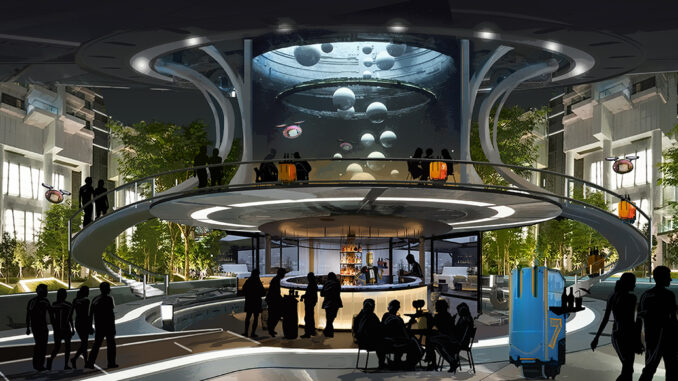
9.25.2020
A global think tank consisting of 325 hospitality industry executives and spearheaded by The Gettys Group, a Chicago-based design, development and consulting firm, have been imagining the future of hotel design and technology innovation for this year’s The Hotel of Tomorrow Project. This is the Gettys Group’s second Hotel of Tomorrow Project.
The first think tank, which ran from 2004-2006, produced the robot butler concept, later implemented by Aloft.
Since June, designers, manufacturers, owners, and operators from a wide range of brands – including Four Seasons, Hilton, IHG, Marriott, Kohler Company, Milliken and Cornell University – have been gathering online creating, reviewing and testing concepts.
“The COVID crisis has created a need for answers to questions hotels could not answer on their own,” said Ron Swidler, The Gettys Group Chief Innovation Officer. “We needed to think beyond room cleaning initiatives and air purifying systems and develop long lasting solutions that addressed health, safety, sanitation, technology, aesthetics and environmental concerns.”
The think tank resulted in 79 ideas submitted by 16 teams from around the world. The result is five cutting-edge concepts addressing food & beverage operations, guest room experience, meetings, customer service and customer experience. These ideas were then shared with more than 1000 hospitality executives.
Surveyed respondents selected the concepts they believe had the most future potential. ln descending order, they are as follows:
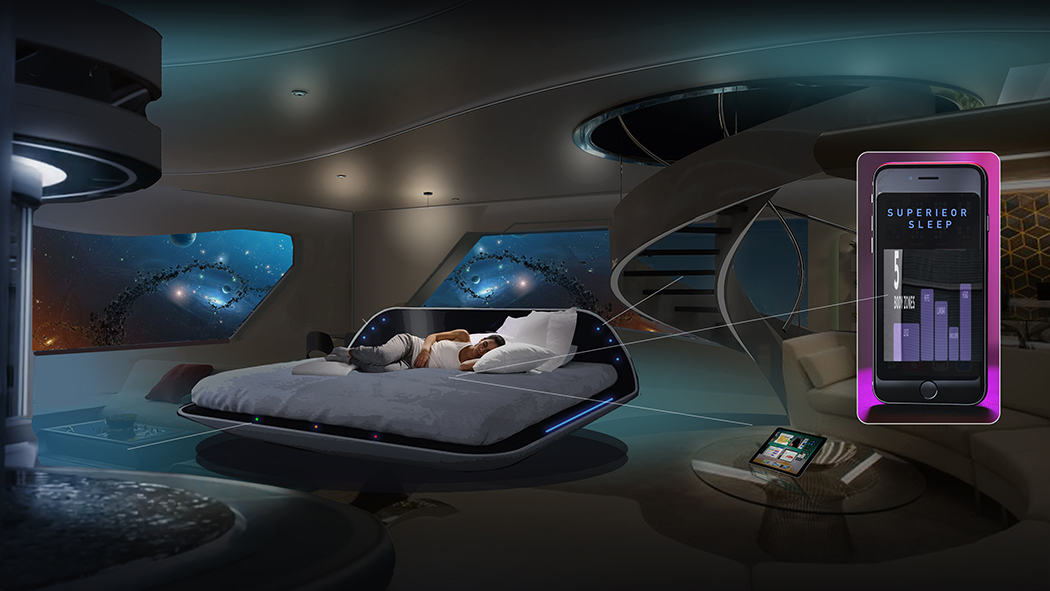
Bed XYZ. An optimized sleep platform devised to enhance the guest room environment. Engineered fabrics control bed temperature and act as filters to improve air quality. An array of smartphone applications permit guests to control lighting, temperature, and humidity, as well as mediate background noise, regulate mattress firmness, and access physical exercise and meditative programs.
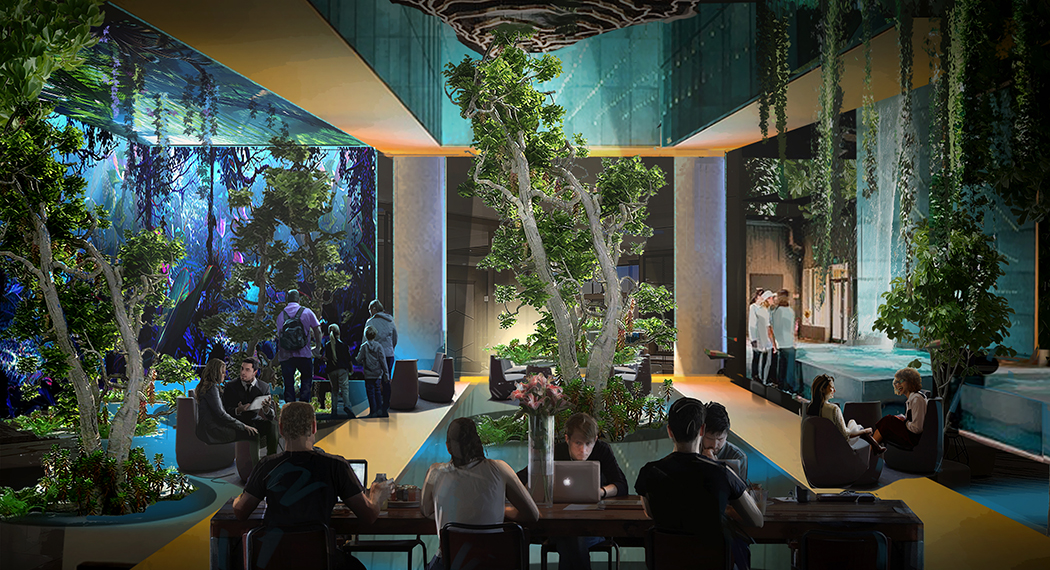
Outside In, Inside Out. Re-envisioning public areas, this concept incorporates aspects of the outdoors within such interior spaces as lobbies, meeting rooms, and ballrooms. Focusing on lighting, air quality, sound and scents, it aims to mitigate the sense of confinement that can occur, particularly for the business guest who often remains on property for long periods of time. Extensive installations of plant material, as well as nature-driven video imagery and other ambient features, are intended to create a calming environment, one that can induce creativity and enhance productivity.
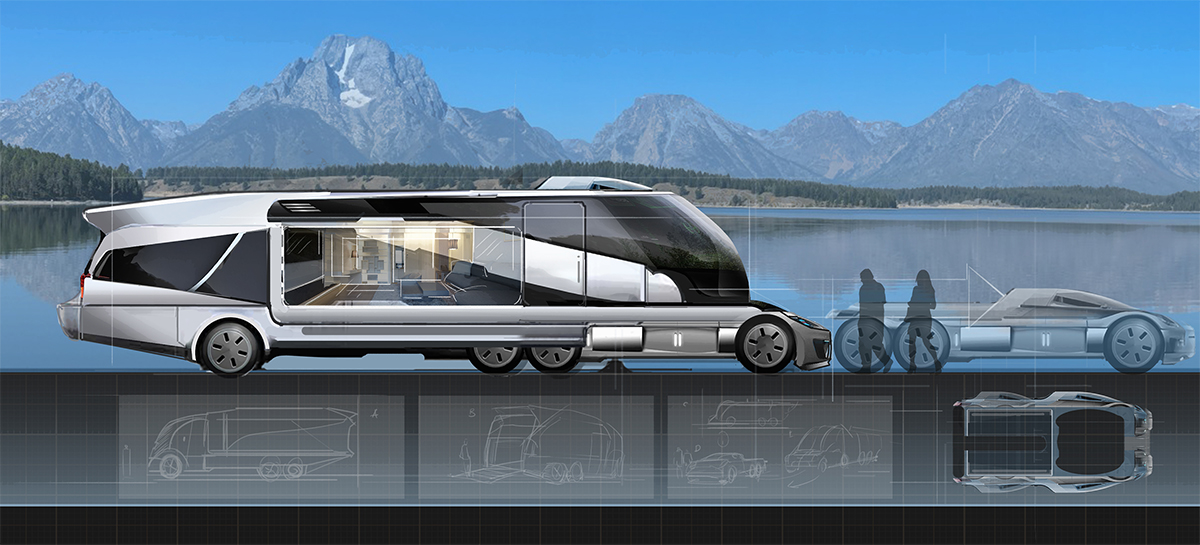
Hotel Rover: Accommodating up to four people, this self-driving vehicle offers on-the-go comfort. Complete with AI-powered digital assistance, guidance and entertainment options are available via voice command and touch screens. It is designed for sleeping as well as transport between partner hotels, where guests can enjoy the full services and amenities of a brand’s physical properties.
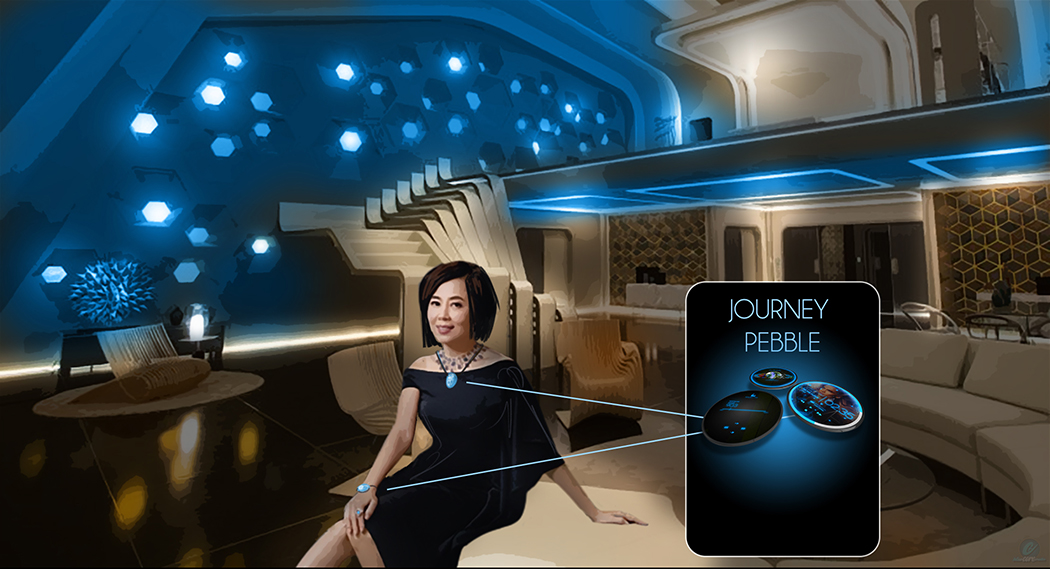
Journey Pebble: A digital, encrypted wearable that shares the guest’s preferences with the hotel to provide a seamless and personalized stay. Utilizing this data, the hotel staff can not only meet a guest’s expectations, but suggest additional services and programming that complement the wish list he or she has provided. A clone of the Journey Pebble will be held behind the front desk, along with those of other guests, to interact through an AI network and promote suitable virtual or face-to-face interactions.
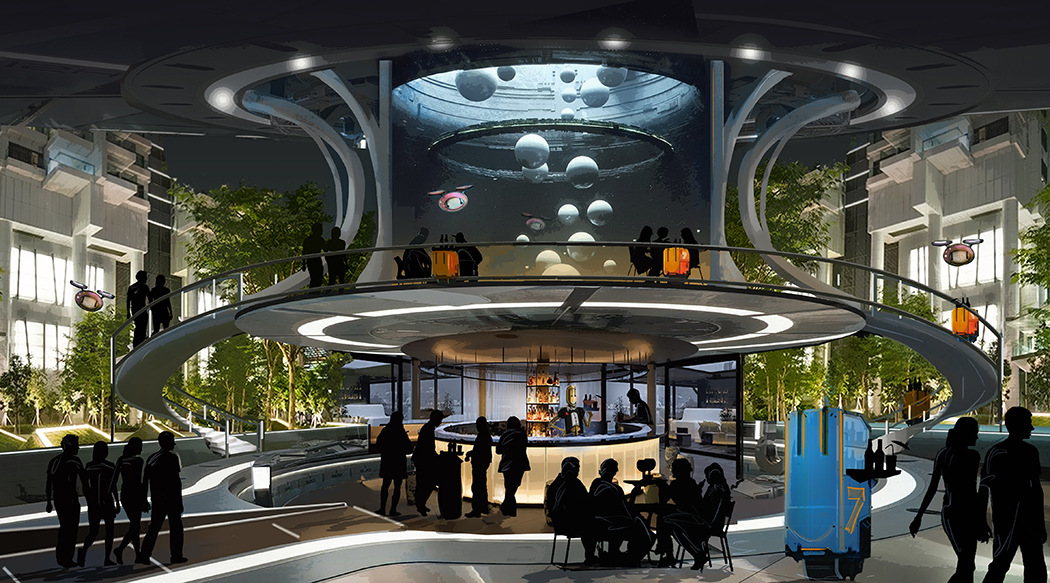
Robot Alliance: A deconstructed approach to the food-and-beverage experience deploying robots to allow guests to drink and dine beyond the confines of the hotel restaurant and bar. Equipped with warming and cooling units and doubling as dining surfaces, these robotic companions allow guests to eat and socialize anywhere on a property. Larger versions feature audiovisual components for music, movies, and gaming. Service drones communicate with a bartending robot — overseen by a skilled mixologist—to send out restocked robots when needed.
Respondents also said that they would pay more for a hotel that offered a Hotel Rover experience and Bed XYZ and they selected Bed XYZ and Outside In, Inside Out as top choices for influencing their decision to stay at a hotel.
According to Swidler, implementing the global hospitality think tank during the pandemic created a unique challenge. “We needed technology that allowed global teams to gather and work together on these projects. We found the perfect partner in Cincinnati-based Batterii. Through the use of their technology and guidance, we were able to create online workshops and build shared research archives.”
“Covid19 revealed how much we need to embrace not only health and safety measures, but also technology,” said Swidler. “Innovation comes through collaboration and helps us find solutions for moving the industry forward.”
